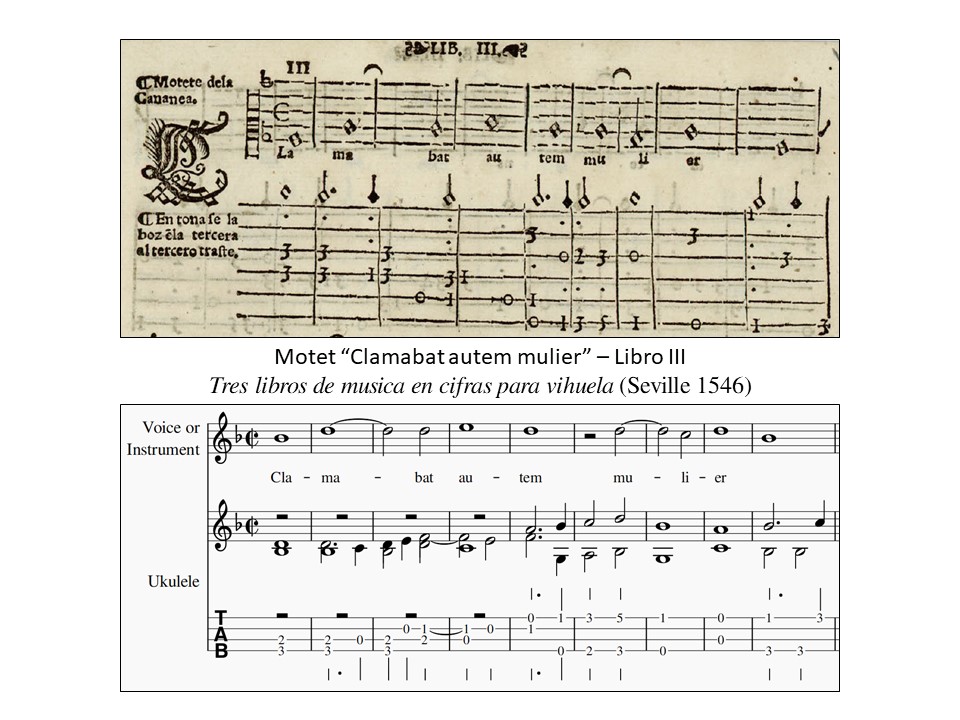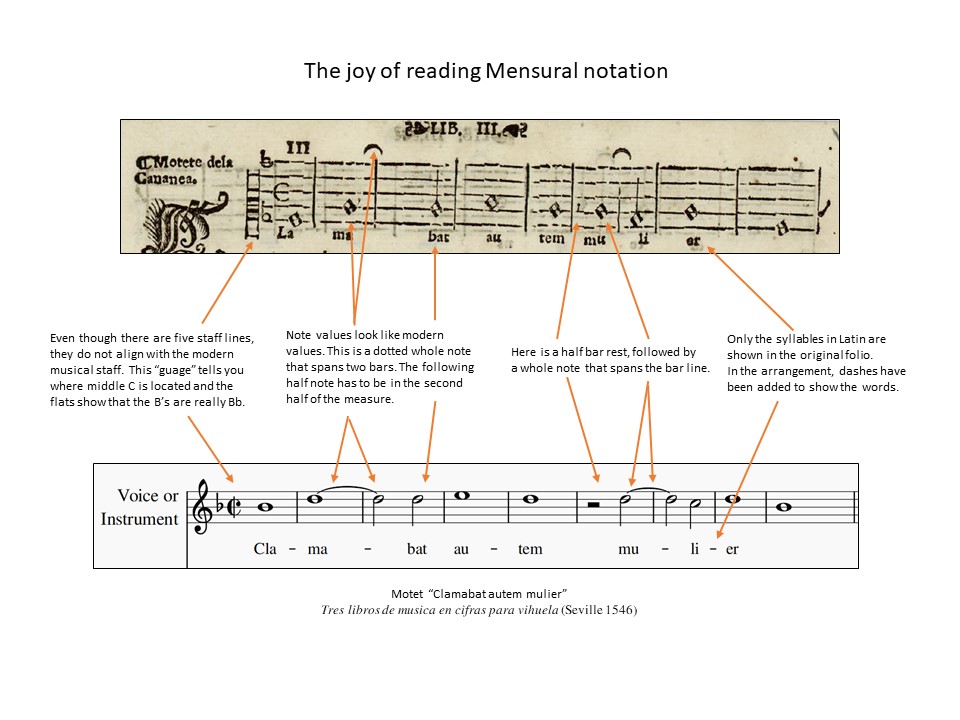Monthly archives: April 2022
Music with vocal / instrumental parts
Libro III of “Tres libros de musica en cifras para vihuela” (1546) by Alonso Mudarra has a series of pieces for voice with vihuela accompaniment. In most other books, the vocal part is written in the same tabulature as the instrumental part with either a different colour or other marking to separate the parts (in fact, two of the pieces are written this way). Mudarra presents this differently with separate systems for each part. The vihuela lines use standard Italian tabulature (i.e. the highest sounding string is on the lowest line of music) using vihuela tuning. The voice is presented using Mensural notation (which I am learning how to read; good explanation in Wikipedia) but with a twist – there are bar lines in the music and it is aligned with the vihuela bar lines. The illustration attached of a Motet shows this as well as my arrangement for ukulele and voice/instrument (i.e. the voice line need not be sung, it can be played using any instrument such as a flute or oboe). I am looking up the words, in Latin in this case, and translations to ensure that I get them right as the original folio does not show the words, only the syllables – in my arrangement, the syllables are joined with dashes to form words. It’s a bit of a mind bender but it’s actually satisfying to hear the software play the music with ukulele and recorder.

Words
Clamabat autem mulier channanea ad Dominum Jesum, dicens: Domine Jesu Christe, fili David, adiuva me; filia mea male a demonio vexatur.
Respondens ei Dominus dixit: Non sum missus nisi ad oves quae perierunt domus Israel.
At illa venit et adoravit eum dicens: Domine, adiuva me.
Respondens Jesus ait illi: Mulier, magna est fides tua, fiat tibi sicut vis.
Translation
A woman of Canaan cried to the Lord Jesus, saying: Lord Jesus Christ, son of David,
help me; my daughter is grievously troubled by a devil.
And he answering, said: I was not sent but to the sheep, that are lost of the house of Israel.
But she came and adored him, saying: Lord, help me.
Then Jesus answering, said to her: O woman, great is thy faith: be it done to thee as thou wilt.

Subsequently, in April 2022, several versos and psalmos were made available for free and, in May 2022, two books of vocal/instrumental music by Mudarra were published.
